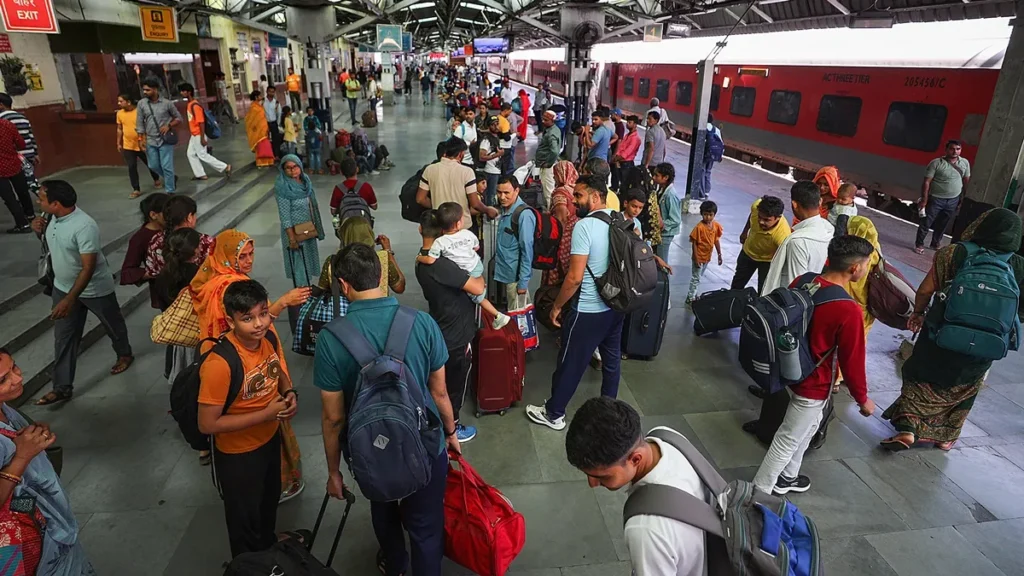The Northern Railways has been compelled to take drastic measures as the ongoing farmers’ agitation at Sambhu station, situated on the Ambala Cantt junction – Sanehwal section of Ambala division in Haryana, continues to disrupt train services. A recent press release from the Northern Railways revealed that a total of 178 trains have been affected, with 69 trains cancelled, 97 trains diverted, and 12 trains either short terminated or short originated.

Since April 17, farmers from Punjab have been staging protests at the Sambhu border of Haryana and Punjab, demanding guarantees on Minimum Support Price (MSP) among other grievances. These protests have extended to the occupation of railway tracks at Sambhu station, effectively halting rail operations in the area. In response, the Northern Railways has made the difficult decision to cancel numerous trains, including both express and passenger services, on this crucial section.
One of the heavily impacted train routes is the Delhi-Katra line, which traverses through key stations such as Ghaziabad, Meerut, Deoband, Muzaffarnagar, and Saharanpur. This route is particularly vital for thousands of devotees who utilize it to reach the revered Vaishno Devi shrine in Jammu. The cancellation of this and several other trains bound for destinations in Punjab, Himachal Pradesh, and Jammu has triggered significant challenges for commuters and businesses alike.
Ajay Gupta, President of the Sanyukt Vyaapar Sangh in Meerut, highlighted the far-reaching consequences of these disruptions. He emphasized that many individuals, including devotees and traders, rely on these train services for their regular activities. Gupta pointed out that frequent travelers to the Vaishno Devi shrine, both for religious purposes and leisure, are now forced to either adjust their plans or cancel their reserved tickets due to the cancellation of the Delhi-Katra train.
Furthermore, the impact extends beyond leisure travelers, affecting businesses that depend on the smooth functioning of these train services. Traders who frequently commute for business purposes find themselves grappling with the uncertainty caused by the cancellation and diversion of trains. The disruption in rail services threatens to adversely impact their businesses, disrupting supply chains and hindering crucial trade activities.
The situation underscores the urgent need for dialogue and resolution between the concerned authorities and the protesting farmers to alleviate the hardships faced by commuters and businesses. Until then, the Northern Railways and its passengers remain caught in the crossfire of a contentious socio-political issue, with the disruption of rail services serving as a poignant reminder of the broader ramifications of civil unrest on everyday life.
